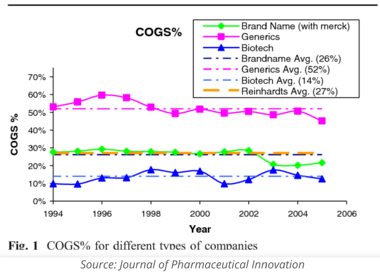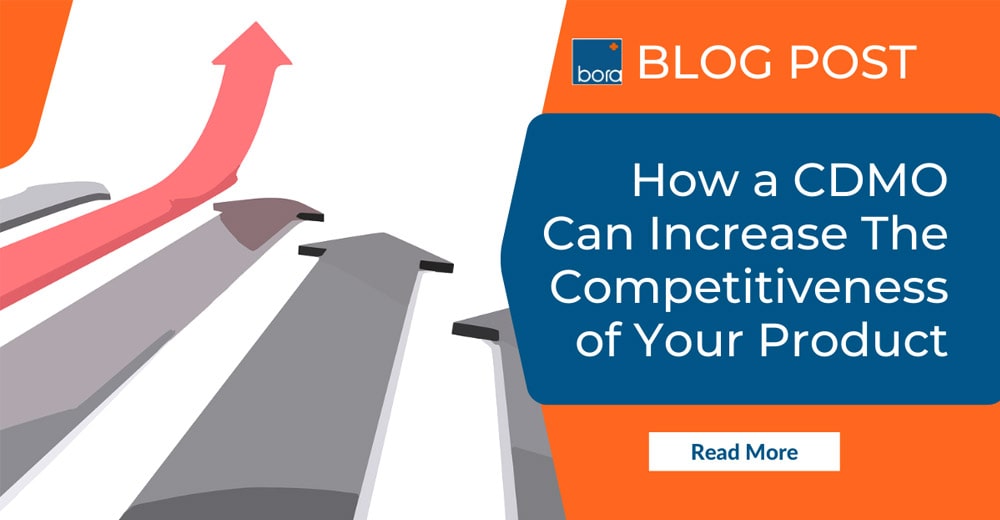After 1990, the pharmaceutical industry shifted due to increased R&D spending, changes in the health insurance system, and the competition from new drugs and ones that were going generic. This shift drove increased complexity in supply chain operations. The demand for smaller production scale and shorter fulfillment times have been increasing. In some cases, this situation caused changes in product prices, regulatory uncertainty around new product development, and some inefficient collaborations in the supply chain operations.
What Is the Current Challenge?
Pharmaceutical companies continue to look for cost efficiencies due to these changes. Simple manufacturing outsourcing services no longer meet the financial and environmental protection requirements of pharmaceutical companies.
In the current environment where specialization of the pharmaceutical industry supply chain is increasing, contract manufacturers can undertake more functions such as:
- Research and Development as well as product improvements
- Provide innovative technical services
- Help reduce costs and risks
- Improve R&D efficiency
- Consider environmental issues
Therefore, high-tech, value-added process development and industrial application represent the future development trend of the pharmaceutical outsourcing industry.
Among other things, pharmaceutical companies are looking for solutions to increase revenue by reducing costs. Also, due to cost considerations, outsourcing to low-cost countries such as India, China, and Taiwan have become an important option.
 The Cost of Goods Sold (COGS) represents about 30% of the total cost in the pharmaceutical industry; The COGS include:
The Cost of Goods Sold (COGS) represents about 30% of the total cost in the pharmaceutical industry; The COGS include:
- Raw and packaging materials, including freight charges
- Finished product storage and shipping costs
- Direct labor costs
- Overhead expenses
Increasing R&D costs in the development of new drugs has become an important part of the pharmaceutical industry. How to rationally apply limited resources and reduce the COGS have become the key to business.
4 Reasons Why You Need a Contract Development and Manufacturing Organization (CMO/CDMO)
Reduce Cost of Goods (COGS)
Capital Expense
Pharmaceutical companies invest a large amount of capital in construction and maintenance for their manufacturing operations. Many production facilities of pharmaceutical companies are specifically built to manufacture certain products, that over time or after the product goes generic, decrease in volume. As these volumes decrease, CMO/CDMO can assist pharmaceutical companies by taking over the manufacturing allowing the large overhead facilities with high fixed costs to be repurposed for other products. Thus, the manufacturing cost is converted into variable costs and allowing the pharma companies to invest more capital into their core development area.
Vendor Management Cost
Due to GMP policies, the quality of raw materials and the finished product are a top priority. CDMOs are experts at vendor management, new vendor sourcing, and material bargaining that otherwise could be time-consuming and costly for the pharmaceutical innovator.
Inventory Management Cost
Purchasing and storing expensive API and excipients can affect budgeting and forecasting. CDMOs are adept at managing inventory. Sourcing materials during the current COVID-19 situation impact timelines and the drug supply to patients. Since CDMOs manufacture many products for different pharma companies, they can balance manufacturing needs.
Controlling Supply Risk
Long-term production planning is becoming increasingly challenging. Since the beginning of the 21st century, many unpredictable natural disasters, diseases, and even political unrest are rapidly changing human life. With the COVID-19 pandemic, market leaders are at risk of losing their market share and/or facing shortages with fines for failure to supply.
Capacity Flexibility Needs
Manufacturers’ production line requirements continue to change as products shift. In the 1980s and 1990s, most of the medicines were formulated in solid dosage (tablets or capsules) and the market demand for these products were huge. As a result, Big Pharma expanded their solid dosage production lines. With the development of new dosage form (inhalation, skin absorption, liquids, etc.) and new dosage design (ER, CR), Big Pharma shifted their production, and this significantly reduced the volume of mass-produced solid dosage.
During this same time, there was the creation of “generic” pharmaceutical companies and small pharmaceutical companies who were able to acquire mature solid dosage products and technology from Big Pharma companies. These companies did not have manufacturing sites like Big Pharma, so they needed to turn to CDMO’s for their manufacturing needs. Over time, there was a need to improve efficiency in the manufacturing of these products to keep costs low, so CDMO’s had to innovate. This drive for efficiency and innovation have benefited not only these companies, but the CDMO industry as well since they can provide better value to their customers.
Rising demand for generics in emerging countries
As the patents for innovative drugs continue to expire, many pharma companies are actively exploring the generic market and breaking the monopoly of multinational pharmaceutical companies in Europe and North America. Outsourcing providers have accumulated a lot of process research and development and large-scale production experience in the field of innovative manufacturing. Combined with versatile production facilities, pharmaceutical companies in emerging countries are eager to cooperate with professional CDMO companies to break through pharmaceutical process barriers.
How Does a CDMO’s Supply Chain Increase the Competitiveness of Your Business?
Since the reduction of COGS is the key to increasing core competitiveness, finding a trusted CMO/CDMO partner can significantly improve the competitiveness of your products. Relying on CMO/CDMO services has the following advantages:
- Global material vendor sourcing
- Strong material bargaining power
- Highly efficient sourcing team
- Highly flexible and efficient supply plan
- Strong partnership with global logistics service providers
- A Business Continuity Plan (BCP) to reduce supply risk
- Competitive production unit cost
- Efficient Inventory management
The competition in the pharmaceutical industry has become more intense than it was 10 years ago. A CMO/CDMO can help increase the competitiveness of your product whether it is generic or brand.



